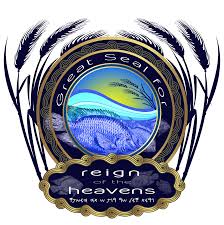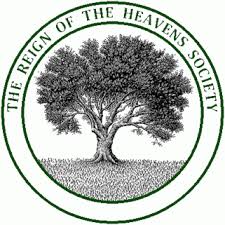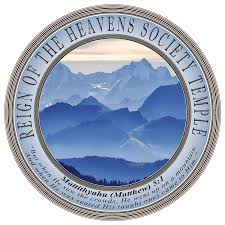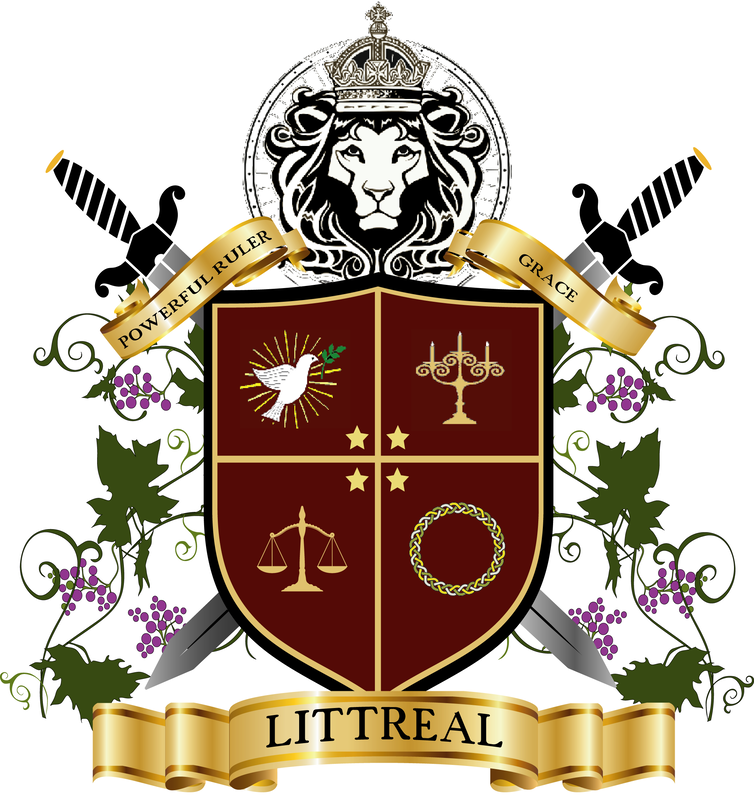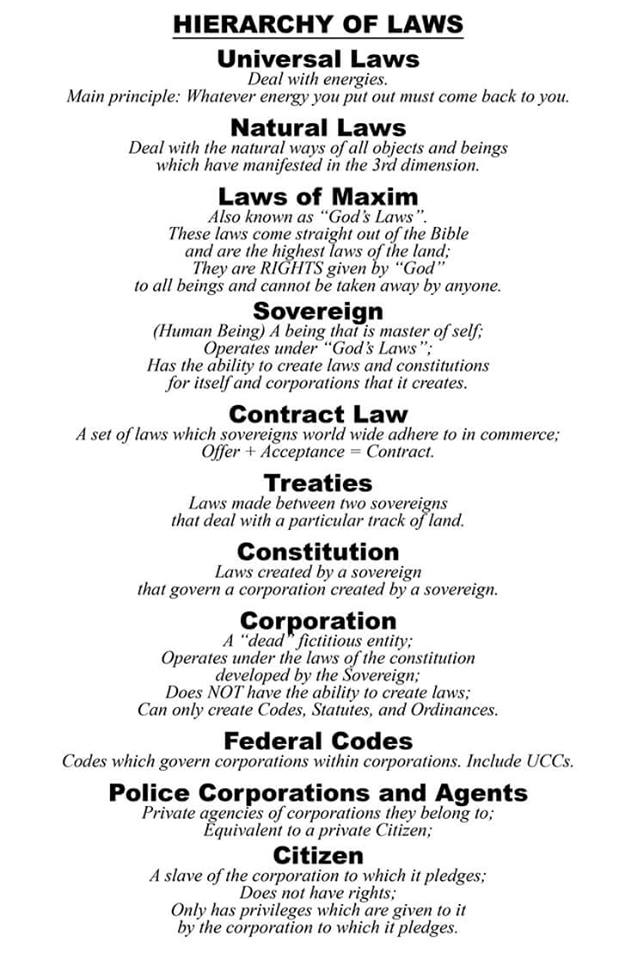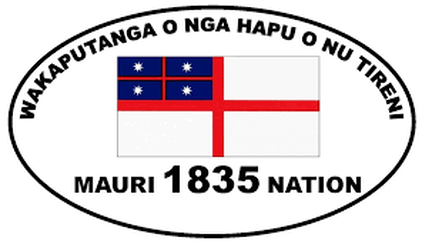STRUCTURE
THEOCRATIC, PATRIARCHAL SYSTEM
NEW JERUSALEM - SATELITE CITY
HEAVENLY REALM
GOD IHOWAA - YAHUAH (ABBA YAH) / SUPREME RULER
IO NUI IO / EL ELYON
(IMMA YAH) RUACH HA KODESH (WAIRUA TAPU)
YAHUSHUA HA MASHIACH (IHU KARAITI)
Gavin Maršić
LORD of lords, KING of kings
|
PROTECTORATE / GUARDIAN ANGELS
Seraphim
Cherubim
Thrones
Dominions or Lordships
Virtues or Strongholds
Powers or Authorities
Principalities or Rulers
Archangels
|
DIVINE GOVERNMENT
GUARDIANS OF DIVINITY / AD-MINISTERS
FOUR AND TWENTY ELDERS / UPPER HOUSE COUNSEL
KAITIAKI PUTEA TRUST (CREDIT ARM)
Section 212 of Te Ture Whenua Maori/Maori Land Act 1993/1995
Revenue (Tithe)
Auditing, Record Keeping, Accounting
Economic Development
Risk Management Group
Crowd Funding
Accident Insurance
Fees & Charges
Banking
Insurance
Policy Advisor Group
Asset Management
|
FOUR AND TWENTY ARIKI / HIGH PRIESTS LOWER HOUSE COUNSEL
OVERSEERS OF THE VINEYARD
|
12 TRIBES / NATIONS HEADS
PROTECTORATE / KAITIAKI TRUST (MARAE SECURITY ARM)
Section 217 of Te Ture Whenua Maori/Maori Land Act 1993/1995
Policy Enforcement
Policing
Marae Services
Civil Defence
Defence Forces
Institutions
Disarmament and Arms Control
Risk Management Group
Policy Advisory Group
Loremen
Peace Officers
Public Services
|
CHURCH LEADERS / BODY OF CHRIST
TOHUNGA - RANGATIRA - AHIKA - MATEKITE
KAITIAKI WHANAU TRUST (MARAE JUSTICE ARM) 144,000 - 12 x 12,000
Section 214 of Te Ture Whenua Maori/Maori Land Act 1993/1995
Courts
Corrections
Security
Policing
Policy Enforcement
Court Bailiffs & Sheriffs
Detention Centres
Probation Services
Transport
Marae-based Programmes
Law Society, i.e, Law Making Body
Legislation
Legislation Process
Laws, Statutes, Bills (Proposed Bills)
Risk Management Group
Policy Advisory Group
Public Services
|
EARTHLY REALM
INTERNATIONAL & NATIONAL LEADERS
KAITIAKI TOPU WHENUA TRUST (INTERNAL ARM)
Section 216 of Te Ture Whenua Maori/Maori Land Act 1993/1995
Resource Management
Cooperatives
Education
Hapu Services (archives)
Sports, Fitness, Leisure
Health & Well-Being
Social Services
Accidents
Employment
Disability Issues
Infrastructure
Media & Entertainment
Energy
Sea, Air & Land Transport
Waste Management
Food
Industry
Housing
Clean Water
Immigration
Risk Management Group
Policy Advisory Group
|
LOCAL OFFICIALS
KAITIAKI AHU WHENUA TRUST (COMMERCIAL ARM)
Section 215 of Te Ture Whenua Maori/Maori Land Act 1993/1995
Resource Management
Trade Alliances
Environment
Agriculture & Agribusiness
Fisheries
Ventures
Energy
Forestry
Rural Affairs
Arts, Culture & Heritage
Land Information
Foreign Affairs
Science & Technology
Agriculture
Small to Medium Businesses
Conservation
Trade Negotiations & Relations
Bio Security
Environ Risk Management Group
Policy Advisory Group
|
CITIZENS / CHURCH MEMBERS
COOPERATIVE BUSINESS ALLIANCE
Affiliate Referral Network Trading Partners
Church - Spiritual
Family Bonding
Community Work
Resource management
Project Housing Syndicate
Te Waka / Canoe / Country
|
Te Rōpū / Group of Tribes / National Districts
|
Te Iwi / Tribe / Local Community
|
Te Hapu / Sub Tribe / Relatives
|
Te Whanau / Family / Husband - Wife - Children
THEOCRATIC, PATRIARCHAL SYSTEM
NEW JERUSALEM - SATELITE CITY
HEAVENLY REALM
GOD IHOWAA - YAHUAH (ABBA YAH) / SUPREME RULER
IO NUI IO / EL ELYON
(IMMA YAH) RUACH HA KODESH (WAIRUA TAPU)
YAHUSHUA HA MASHIACH (IHU KARAITI)
Gavin Maršić
LORD of lords, KING of kings
|
PROTECTORATE / GUARDIAN ANGELS
Seraphim
Cherubim
Thrones
Dominions or Lordships
Virtues or Strongholds
Powers or Authorities
Principalities or Rulers
Archangels
|
DIVINE GOVERNMENT
GUARDIANS OF DIVINITY / AD-MINISTERS
FOUR AND TWENTY ELDERS / UPPER HOUSE COUNSEL
KAITIAKI PUTEA TRUST (CREDIT ARM)
Section 212 of Te Ture Whenua Maori/Maori Land Act 1993/1995
Revenue (Tithe)
Auditing, Record Keeping, Accounting
Economic Development
Risk Management Group
Crowd Funding
Accident Insurance
Fees & Charges
Banking
Insurance
Policy Advisor Group
Asset Management
|
FOUR AND TWENTY ARIKI / HIGH PRIESTS LOWER HOUSE COUNSEL
OVERSEERS OF THE VINEYARD
|
12 TRIBES / NATIONS HEADS
PROTECTORATE / KAITIAKI TRUST (MARAE SECURITY ARM)
Section 217 of Te Ture Whenua Maori/Maori Land Act 1993/1995
Policy Enforcement
Policing
Marae Services
Civil Defence
Defence Forces
Institutions
Disarmament and Arms Control
Risk Management Group
Policy Advisory Group
Loremen
Peace Officers
Public Services
|
CHURCH LEADERS / BODY OF CHRIST
TOHUNGA - RANGATIRA - AHIKA - MATEKITE
KAITIAKI WHANAU TRUST (MARAE JUSTICE ARM) 144,000 - 12 x 12,000
Section 214 of Te Ture Whenua Maori/Maori Land Act 1993/1995
Courts
Corrections
Security
Policing
Policy Enforcement
Court Bailiffs & Sheriffs
Detention Centres
Probation Services
Transport
Marae-based Programmes
Law Society, i.e, Law Making Body
Legislation
Legislation Process
Laws, Statutes, Bills (Proposed Bills)
Risk Management Group
Policy Advisory Group
Public Services
|
EARTHLY REALM
INTERNATIONAL & NATIONAL LEADERS
KAITIAKI TOPU WHENUA TRUST (INTERNAL ARM)
Section 216 of Te Ture Whenua Maori/Maori Land Act 1993/1995
Resource Management
Cooperatives
Education
Hapu Services (archives)
Sports, Fitness, Leisure
Health & Well-Being
Social Services
Accidents
Employment
Disability Issues
Infrastructure
Media & Entertainment
Energy
Sea, Air & Land Transport
Waste Management
Food
Industry
Housing
Clean Water
Immigration
Risk Management Group
Policy Advisory Group
|
LOCAL OFFICIALS
KAITIAKI AHU WHENUA TRUST (COMMERCIAL ARM)
Section 215 of Te Ture Whenua Maori/Maori Land Act 1993/1995
Resource Management
Trade Alliances
Environment
Agriculture & Agribusiness
Fisheries
Ventures
Energy
Forestry
Rural Affairs
Arts, Culture & Heritage
Land Information
Foreign Affairs
Science & Technology
Agriculture
Small to Medium Businesses
Conservation
Trade Negotiations & Relations
Bio Security
Environ Risk Management Group
Policy Advisory Group
|
CITIZENS / CHURCH MEMBERS
COOPERATIVE BUSINESS ALLIANCE
Affiliate Referral Network Trading Partners
Church - Spiritual
Family Bonding
Community Work
Resource management
Project Housing Syndicate
Te Waka / Canoe / Country
|
Te Rōpū / Group of Tribes / National Districts
|
Te Iwi / Tribe / Local Community
|
Te Hapu / Sub Tribe / Relatives
|
Te Whanau / Family / Husband - Wife - Children
What are God-ordained authority structures?
Structures of Authority - order in the home, church, workplace, and government.
Recognizing and obeying the one in charge brings security and order to a group.
Each person looks to the leader for direction and accountability, and he or she provides guidance for working through questions or problems that arise. The one in charge is ultimately responsible for the activities and productivity of the group.
In the Bible, God outlines authority structures that provide direction for the family, church, workplace, and government. “Let every soul be subject unto the higher powers. For there is no power but of God: the powers that be are ordained of God”(Romans 13:1).
God Is the Source of All Authority.
By virtue of Who He is as creator of all things, God is the sovereign ruler of the universe. He has all power and all authority, and He entrusts roles of leadership to individuals in the family, the church, the workplace, and the government.
The orderliness we find in structures of authority reflects the order of God’s own nature. God is a Trinity: the Father, the Son Jesus Christ, and the Holy Spirit. The Father sent the Son into the world as Savior and Redeemer. (See I John 4:9.) Jesus was obedient to God the Father. (See John 5:19.) When Jesus returned to heaven, He and the Father sent the Holy Spirit to comfort Jesus’ disciples, lead them in all truth, remind them of the words of Jesus, and empower them to carry out Jesus’ commission to spread the Gospel. (See John 14:26, 15:26, and Acts 1:8.)
Each member of the Trinity works within the structure of authority and fulfills a specific role, perfectly complementing the others and demonstrating God’s glory. The members are not independent of one another, but God the Father is recognized as the authority Who directs and empowers the Son and Holy Spirit to carry out His will.
Four Biblical Authority Structures
God ordained human authority in four areas and established a specific chain of command in each area. This structure does not express superiority or inferiority. Just as each member of the Trinity is essential to express the fullness of God, so within social structures each role in the chain of authority is necessary for the success of the relationship.
Everyone Is Accountable to God
Each person is accountable to God for his actions, whether he is in authority over others or in a position under authority. God is not prejudiced by culture, education, position, or wealth, and He will judge each person according to His righteous standards.
Human authorities are accountable for how they exercise their authority. They are responsible to provide protection and direction for those under their care, to punish those who do wrong, and to praise those who do well.Those under authority are accountable to God for their responses to authority. Since God placed authorities over us, to obey them is to submit to God’s design and authority in our lives.
If an authority asks us to do something that is wrong, we need to appeal to him and explain why we cannot violate God’s laws. “Whatsoever ye do, do it heartily, as to the Lord, and not unto men; knowing that of the Lord ye shall receive the reward of the inheritance: for ye serve the Lord Christ” (Colossians 3:23–24).
“. . . Yea, all of you be subject one to another, and be clothed with humility: for God resisteth the proud, and giveth grace to the humble. Humble yourselves therefore under the mighty hand of God, that he may exalt you in due time: casting all your care upon him; for he careth for you” (I Peter 5:5–7).
Accountability is a foundational premise on which all relationships are built. As children of God, children of earthly parents, parents of our own children, employees, employers, and citizens of communities, each of us must wisely carry out his responsibilities both as an instrument of authority and as one who is submitted to authority. Thus, God’s design can be implemented in our relationship with Him, our families, our communities, and our nations.
God's Kingdom, It's Structure Now and Then - Bible Facts Little Understood By Christians
Structures of Authority - order in the home, church, workplace, and government.
Recognizing and obeying the one in charge brings security and order to a group.
Each person looks to the leader for direction and accountability, and he or she provides guidance for working through questions or problems that arise. The one in charge is ultimately responsible for the activities and productivity of the group.
In the Bible, God outlines authority structures that provide direction for the family, church, workplace, and government. “Let every soul be subject unto the higher powers. For there is no power but of God: the powers that be are ordained of God”(Romans 13:1).
God Is the Source of All Authority.
By virtue of Who He is as creator of all things, God is the sovereign ruler of the universe. He has all power and all authority, and He entrusts roles of leadership to individuals in the family, the church, the workplace, and the government.
The orderliness we find in structures of authority reflects the order of God’s own nature. God is a Trinity: the Father, the Son Jesus Christ, and the Holy Spirit. The Father sent the Son into the world as Savior and Redeemer. (See I John 4:9.) Jesus was obedient to God the Father. (See John 5:19.) When Jesus returned to heaven, He and the Father sent the Holy Spirit to comfort Jesus’ disciples, lead them in all truth, remind them of the words of Jesus, and empower them to carry out Jesus’ commission to spread the Gospel. (See John 14:26, 15:26, and Acts 1:8.)
Each member of the Trinity works within the structure of authority and fulfills a specific role, perfectly complementing the others and demonstrating God’s glory. The members are not independent of one another, but God the Father is recognized as the authority Who directs and empowers the Son and Holy Spirit to carry out His will.
Four Biblical Authority Structures
God ordained human authority in four areas and established a specific chain of command in each area. This structure does not express superiority or inferiority. Just as each member of the Trinity is essential to express the fullness of God, so within social structures each role in the chain of authority is necessary for the success of the relationship.
- Family: Husband—Wife—ChildrenGod entrusts husbands with the leadership of the family unit. A husband is to love his wife as he loves himself. A wife is to submit to the leadership of her husband, coming alongside him as a helpmate. Parents are responsible to train their children, and children are to honor and obey their parents. (See Ephesians 5:21–6:4 and Proverbs 6:20–21.)
- Government: National leaders—Local officials—CitizensIn Scripture we are instructed to respect and obey government authorities and ordinances and to live honorably within our communities. National leaders and local officials are to punish evildoers and honor those who do well. (See I Peter 2:13–17 and Romans 13:1–5.)
- Church: Church leaders—Church membersWithin the church, the leadership of pastors, elders, and teachers is essential for the health of the Body of Christ. Believers are to honor and respect leaders and to submit to one another and walk in humility. (See Ephesians 4:11–16, Hebrews 13:17, and I Peter 5:1–11.)
- Business: Employers—EmployeesEmployers are challenged to act with equity and care as they oversee employees, patterning their behavior after God Himself, Who is their authority. Employees are responsible to serve well, doing their work wholeheartedly as unto the Lord. (See Colossians 3:22–4:1 and I Peter 2:18.)
Everyone Is Accountable to God
Each person is accountable to God for his actions, whether he is in authority over others or in a position under authority. God is not prejudiced by culture, education, position, or wealth, and He will judge each person according to His righteous standards.
Human authorities are accountable for how they exercise their authority. They are responsible to provide protection and direction for those under their care, to punish those who do wrong, and to praise those who do well.Those under authority are accountable to God for their responses to authority. Since God placed authorities over us, to obey them is to submit to God’s design and authority in our lives.
If an authority asks us to do something that is wrong, we need to appeal to him and explain why we cannot violate God’s laws. “Whatsoever ye do, do it heartily, as to the Lord, and not unto men; knowing that of the Lord ye shall receive the reward of the inheritance: for ye serve the Lord Christ” (Colossians 3:23–24).
“. . . Yea, all of you be subject one to another, and be clothed with humility: for God resisteth the proud, and giveth grace to the humble. Humble yourselves therefore under the mighty hand of God, that he may exalt you in due time: casting all your care upon him; for he careth for you” (I Peter 5:5–7).
Accountability is a foundational premise on which all relationships are built. As children of God, children of earthly parents, parents of our own children, employees, employers, and citizens of communities, each of us must wisely carry out his responsibilities both as an instrument of authority and as one who is submitted to authority. Thus, God’s design can be implemented in our relationship with Him, our families, our communities, and our nations.
God's Kingdom, It's Structure Now and Then - Bible Facts Little Understood By Christians
